Fossilized limestone from Phenix Marble used in new construction
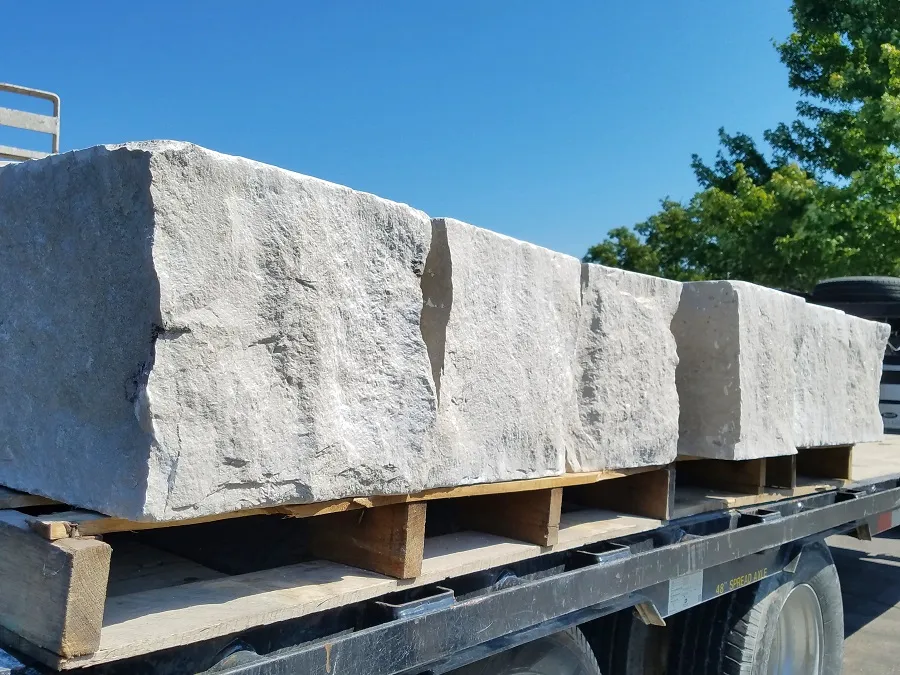
Phenix Marble Company mines block from the same Fossilized limestone deposit that also houses Fantastic Caverns. Stone from Phenix Marble Quarry to be used in grounds improvement projects at Fantastic Caverns.
Construction is underway at Fantastic Caverns, America’s Ride-Thru Cave. Work is being done to improve on-site groundwater infiltration, upgrade parking, install an access drive, construct an entry gate and build a welcome pavilion. Stone for the pavilion and entry gate will be sourced from Phenix Quarry, located about 25 minutes away from the cave. At the quarry, Phenix Marble Company mines block from the same limestone deposit that also houses Fantastic Caverns.
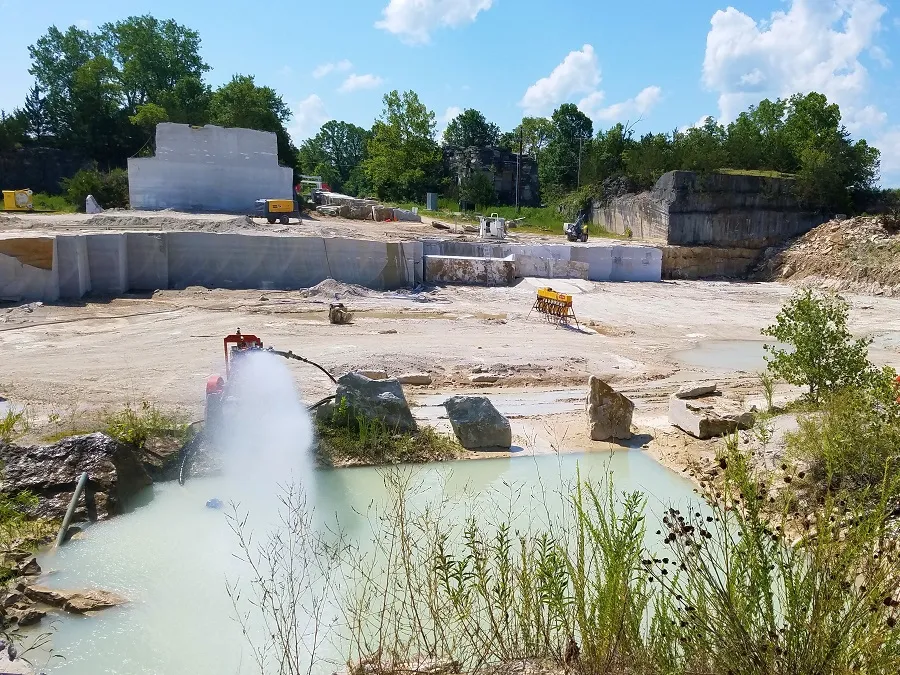
Fossilized limestone from Phenix Marble Company
In 1884 a large deposit of high-grade limestone was discovered in northern Greene County, Missouri, located a few miles south of Walnut Grove, and just a little over 15 miles northwest of Fantastic Caverns. Limestone is abundant beneath the rolling hills of the Ozarks, and the construction of a new railway line in the early 1880s uncovered the high-density limestone. In 1888, Phenix Stone and Lime Company was established, just a year after the installation of electric lights at Fantastic Caverns. By the early 1900s, as business boomed, the company adopted its current name, Phenix Marble Company.
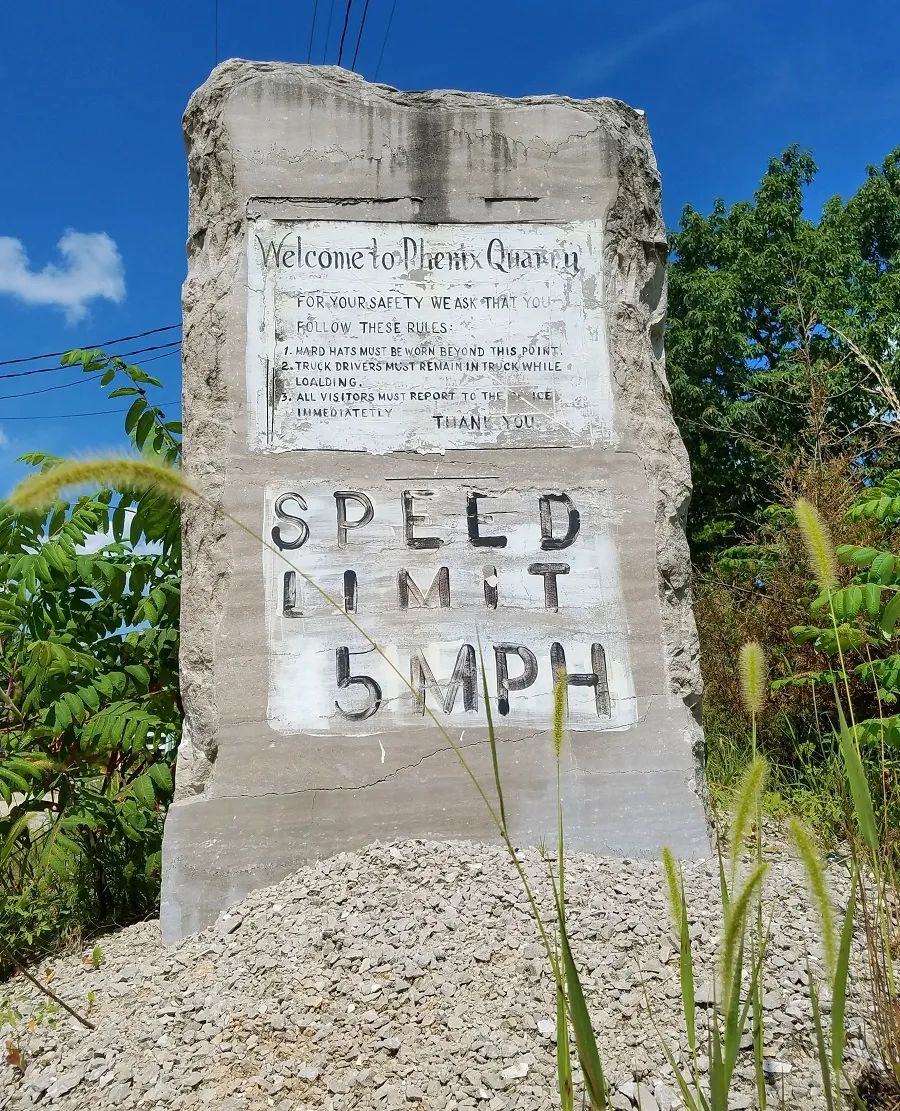
Investors saw a lot of opportunity in the limestone, and prior to the Great Depression, Phenix Marble Company built the company town of Phenix, Missouri, housed and employed hundreds of people, and was one of the largest producers of cut stone and marble west of the Mississippi River. The company was known for its “Napolean Gray” marble and split building stone. Phenix Marble Company continues to mine limestone from the same quarry today. Safety and efficiency at the quarry improved with technology; what took a team of 200 plus people is now accomplished by four. Though the quarry stays active, the company town of Phenix, Missouri is now a distant memory.
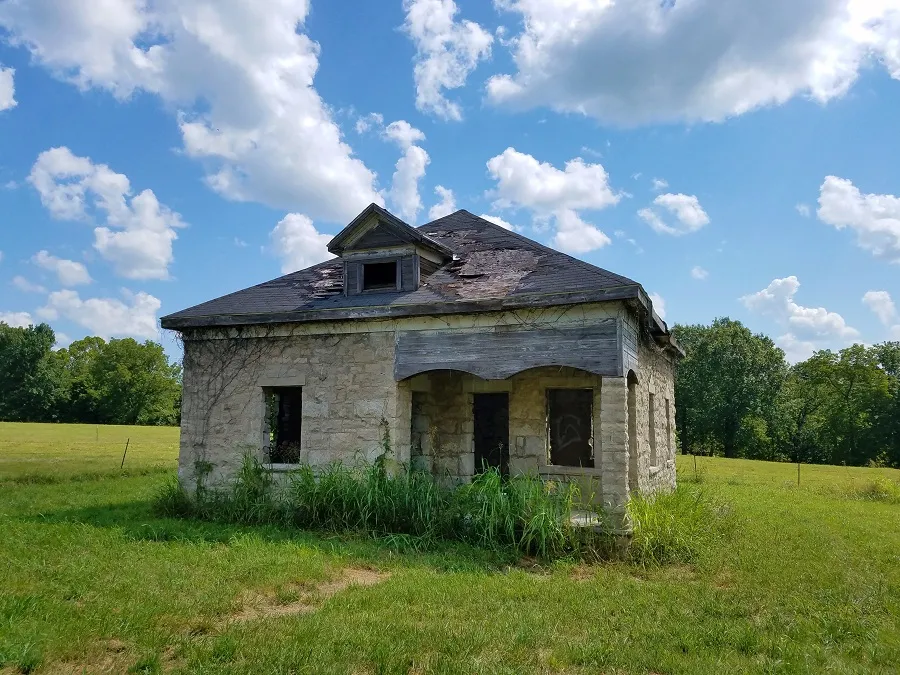
Fantastic Caverns plans to utilize the local limestone for the walls of the welcome pavilion and entry gate. It is a fitting façade, considering the stone is cut from the same layer of limestone Fantastic Caverns was hollowed out from. Sourcing local limestone from Phenix Marble Company for the pavilion and entry gate means the story of cave creation in the Ozarks starts to unfold as soon as guests pull onto the grounds. Not only is the stone sourced from the same limestone deposit, but the limestone itself is one of the necessary ingredients needed to create a cave.
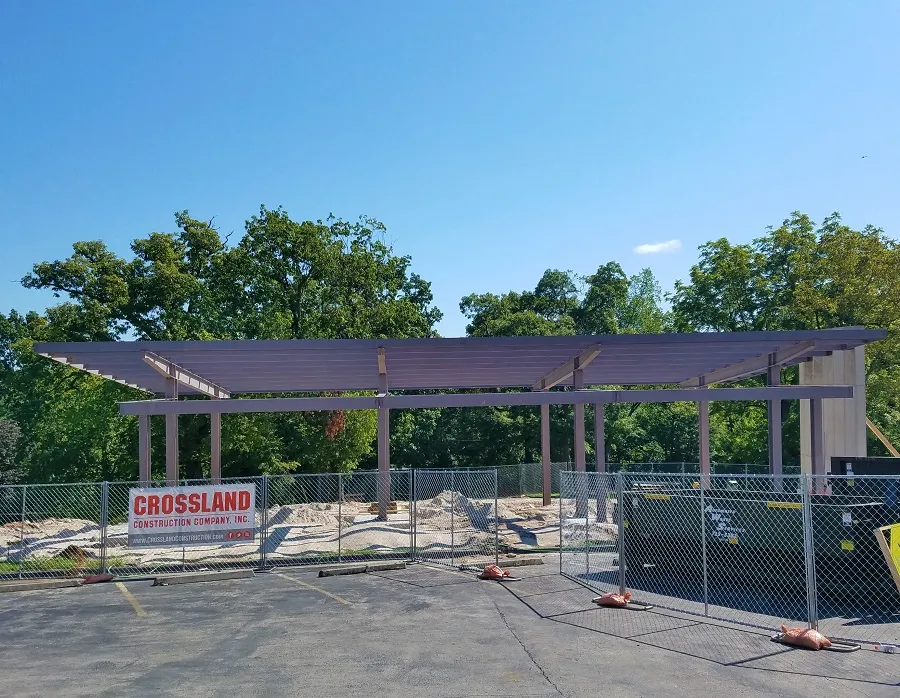
The list of ingredients for creating a cave is short. You need uneven terrain, plenty of soluble rock, like limestone, and plenty of rain or melting snow to supply the groundwater. Water infiltrating into the ground slowly washes away bits of limestone. As limestone erodes, cave passages are created. A blend of stone, water and time, created the passages and the formations visitors see within Fantastic Caverns today.
The abundance of limestone in the Ozarks ensures caves will continue to develop beneath these hills, and that Phenix Marble Company will be producing cut stone and marble for years to come.
About the Author

Director of Marketing
Hubert Heck is the Director of Marketing for Fantastic Caverns